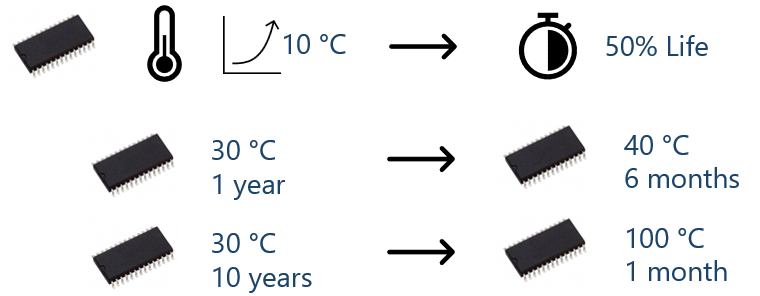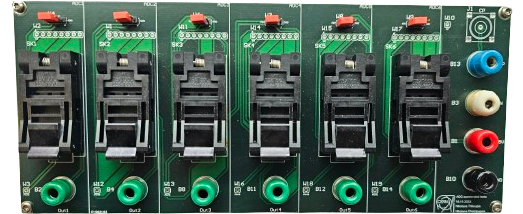Accelerated life tests
An effective method for evaluating the degradation and aging of electronics is through accelerated life testing (ALT). This testing simulates the long-term effects of environmental factors, such as temperature, on the performance and reliability of electronic components. A key principle of ALT is that for every 10 °C increase in temperature, the expected lifespan of the electronics is halved. This relationship is based on the Arrhenius law, which describes how the rate of chemical reactions, and by extension the rate of material degradation, increases with temperature. By conducting ALT, the longevity of electronic systems and identify potential failure points before they occur in real-world applications. This method accelerates the natural aging process, allowing for more rapid assessment of component reliability. It is especially useful in environments where electronics are exposed to extreme conditions, such as in space, high-energy physics experiments, or industrial settings, where replacement of components is costly and time-consuming.

To evaluate the performance of Analog-to-Digital Converters (ADCs), custom PCBs were designed with integrated IC sockets, allowing for easy swapping and testing of various components. These PCBs were placed inside an oven for a duration of one month, where they underwent accelerated life testing to simulate long-term operational conditions. The ADCs being tested successfully passed the accelerated life tests, demonstrating resilience and reliability.
